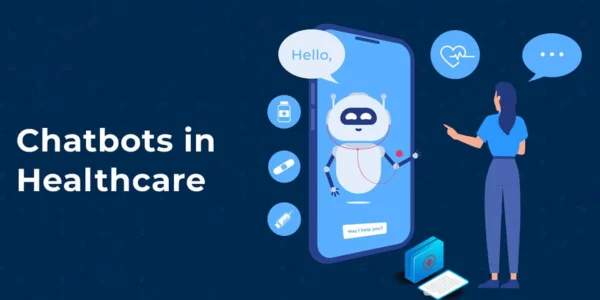The healthcare industry has seen a dramatic shift in the way patients interact with healthcare providers, thanks to the integration of advanced technologies. One of the most impactful innovations has been the introduction of AI-powered assistants. These tools are now transforming how healthcare services are delivered, making patient care more efficient and accessible.
From streamlining communication to providing instant responses, a healthcare chatbot is shaping the future of healthcare. By automating many patient interactions, these intelligent systems provide quick access to healthcare services. In the following article, we’ll explore how these digital assistants are improving medical accessibility and operational efficiency.
Enhancing Accessibility for Patients

One of the biggest advantages of AI-powered assistants in healthcare is their ability to provide patients with immediate access to information. Traditional systems often leave patients waiting for responses or dealing with long wait times, but with this new technology, patients can easily get answers to their medical queries anytime, day or night.
These systems ensure that patients have access to timely information, even outside of normal office hours. For individuals in remote areas or those with limited access to healthcare, this means they can make informed decisions without the delays that often come with traditional healthcare methods. By being available 24/7, this technology helps ensure that patients never feel disconnected from their care providers.
Reducing the Burden on Healthcare Staff
Medical professionals often face high demands, handling numerous calls, messages, and patient inquiries every day. The introduction of digital assistants helps alleviate this burden by taking over routine tasks such as appointment scheduling, prescription refills, and basic inquiries.
This shift allows healthcare staff to focus on more complex cases that require human attention. For example, patients can interact with the system to confirm appointments or get information on their test results, freeing up medical professionals to handle critical matters. By automating these processes, healthcare facilities can improve operational efficiency and reduce the time staff spend on non-essential tasks.
Increasing Efficiency in Communication
Communication within healthcare systems is critical, yet it often presents challenges. Patients may have difficulty reaching their healthcare provider, or they may encounter delays in receiving answers to their questions. AI-powered assistants resolve this by enabling instant, clear communication.
These systems can send reminders for appointments, follow up on test results, or provide information on health management. With quick and accurate delivery, both patients and healthcare providers benefit from enhanced communication. These professionals can communicate vital information to patients more effectively, improving patient outcomes and reducing the likelihood of misunderstandings.
Simplify Routine Tasks and Administrative Processes
In healthcare, administrative tasks can take up significant time and resources. By automating processes such as appointment scheduling, insurance inquiries, and prescription requests, this technology streamlines administrative work, reducing the need for manual intervention.
- Appointment Scheduling: Patients can easily book, cancel, or reschedule appointments without needing to speak directly to staff members.
- Prescription Refills: This technology helps patients request refills and reminds them when it’s time for a new prescription.
- Insurance Inquiries: It can provide basic information regarding insurance coverage, claims, and costs, making it easier for patients to navigate their health benefits.
Improving Patient Engagement and Satisfaction
Patient engagement is essential to improving healthcare outcomes. Engaged patients are more likely to adhere to treatment plans and follow necessary steps for better health. With AI-powered assistants, patients are consistently kept informed and engaged in their care journey.
These systems can offer personalized health reminders, share educational materials, and follow up on treatment plans. By delivering tailored content, patients receive information that directly aligns with their health needs. This level of engagement improves not only patient satisfaction but also overall outcomes.
A healthcare chatbot is making healthcare services more accessible, efficient, and patient-friendly. These AI-powered assistants improve communication, streamline routine tasks, and ensure that patients receive timely and accurate information. As technology continues to evolve, the integration of chatbots will play a pivotal role in shaping the future of patient care.



